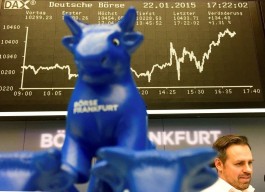The economics department of Qatar National Bank (QNB) said that the main indicators indicate that global trade will not continue to grow, but rather will witness a slowdown, possibly even deflation, in the coming months.
The report, issued today, Sunday, and received by (Namazone) website, stated that there are three main points that support this analysis, the first of which is that the high-frequency data in the major economies (the United States, the euro area, and Japan) indicate a stagnation of global trade. Spot flash PMI surveys in advanced economies recorded consecutive months of sluggish new export orders, which slipped further into contraction territory in October.
Higher inflation negatively affects disposable income in major economies, reducing aggregate demand. This is consistent with the continued slowdown in trade growth in early reporting Asian exporting economies (Japan, South Korea, Singapore and Taiwan). These countries usually lead global trade trends, playing a major role in the supply chains of industrial activities across different continents.
Second, market-forwarding investors expect a significant contraction as well. In fact, investors' expectations about future profits for the transportation sector, a key indicator of future growth in global trade, point to a sharp contraction in demand for physical goods.
The Dow Jones Transportation Index, a stock index made up of airlines, trucking, shipping, rail and delivery companies, which outperforms global exports by at least 3 months, peaked in March 2021 and has since fallen rapidly to rates reflecting a deep downturn .
Third, according to the report, foreign exchange movements are also likely to play their role in frustrating global trade. The appreciation of the US dollar, which is expected due to the strength of the interest rate hikes and the outperformance of the US economy, is a major impediment to the growth of global trade.
About 40% of global trade flows are conducted in US dollars, and a stronger US dollar makes non-US imports more expensive. This leads to more pressure on disposable income or even supports the substitution of imports with domestic products, which negatively affects trade volumes.
In general, global trade volumes are expected to decline significantly over the coming months. The trade reflects the macroeconomic environment and is just another indication of the challenging environment that has prevailed in recent months.









































